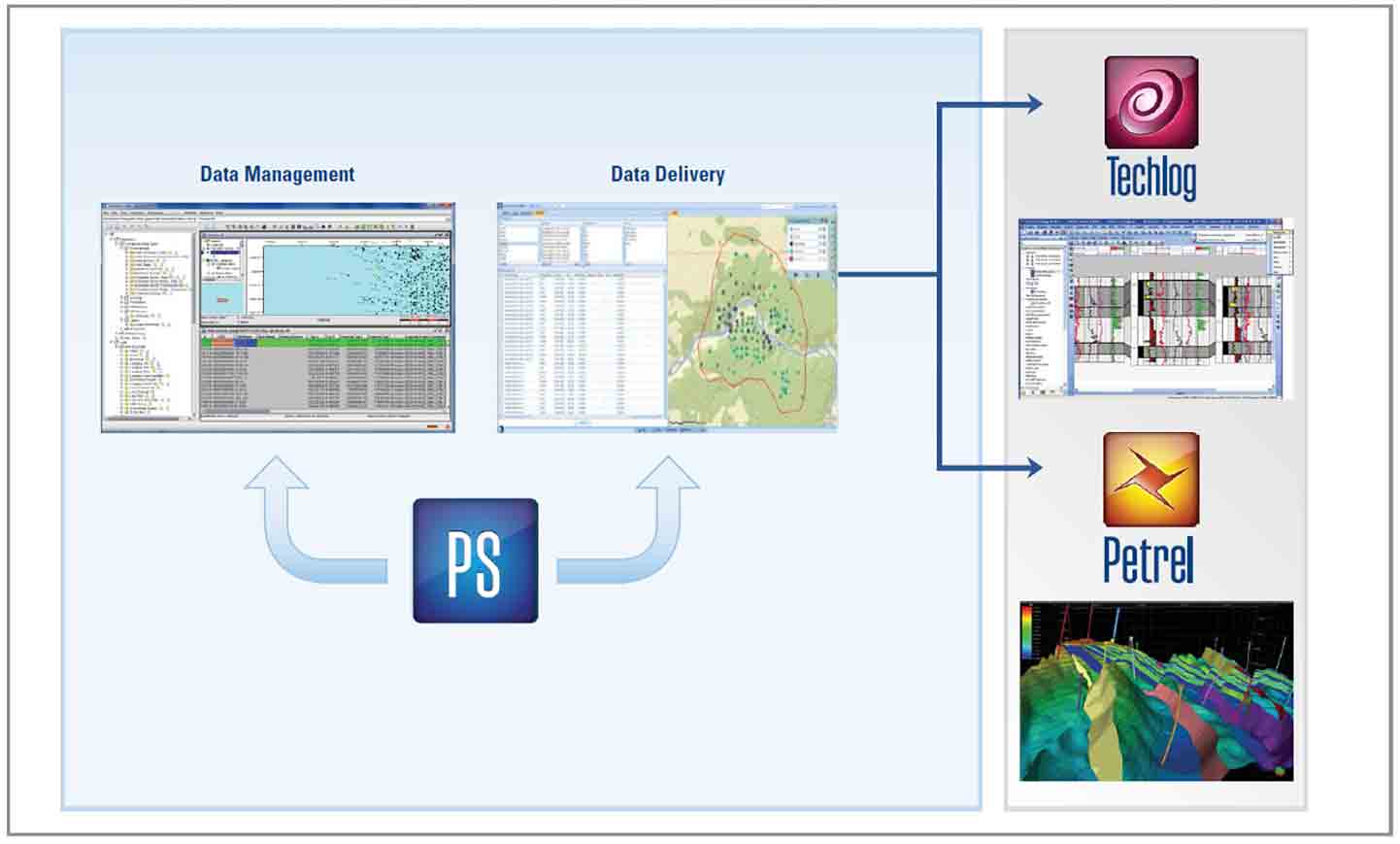Integrated acquisition, management, and delivery of corporate data for use in petrotechnical applications
Migration to ProSource Optimizes Log Data Management for Pemex
Published: 04/16/2015

Migration to ProSource Optimizes Log Data Management for Pemex
Published: 04/16/2015

Separate large databases, not search optimized
Storing and archiving log data is an important part of Pemex's data management strategy, representing a significant corporate investment.
Pemex had stored its log information in multiple databases for many years—spread across five locations throughout Mexico. The locations shared 350,000 individual files and related data from more than20,000 wells, totaling 6 TB of information.
The log databases were not integrated or optimized for search, resulting in users spending significant time manually seeking information. Data quality and reliability varied, and users were not able to engage optimally with the system. In addition, with five servers, five system engineers, and five data managers, administration costs were high.
To overcome these issues, Pemex needed to revisit its methodology and procedures for log data archival, storage, loading, and validation to meet user demands. After meeting with Schlumberger to discuss possible solutions, a plan was formulated to centralize the log information, as well as optimize data transfer to its core applications using the ProSource E&P data management and delivery system.
Efficient migration for systematically addressing all phases of transition
The Schlumberger team used a standardized transition framework to migrate log data from existing repositories in the legacy LogDB software to the ProSource system. The framework comprises tools, methodologies, templates, and best practices to enable sustainable improvement in data transition projects.


The framework has three phases (plan, implement, and optimize) and four streams that stretch across each phase to address all aspects of the transition: infrastructure renewal, data migration, workflow consolidation, and user training and support. This framework provided a systematic approach to Pemex’s legacy data migration to ProSource Logs.
This enabled the Schlumberger team to apply data-usage rules; map data objects (including customized objects); apply data conversions, translations, and transformations; and preserve all data types during the migration process.
Investment preserved with improved access to a complex data environment
A final requirement was to integrate the new data with Pemex´s technical data viewing portal—a process easily accomplished using the flexible web framework provided by the ProSource system.
The ProSource system decreased the cycle time to deliver data to core applications. Its intuitive workflows also optimized user interaction, reducing data search and delivery times.
With the migration complete, Pemex's data management team integrated its log and well data-management activities in the ProSource system. This removed the need for manual searches across multiple data stores, increased data quality, and reduced administration costs through one consolidated well data management solution. In addition to these operational benefits, the project ensured that Pemex could efficiently manage its complex data environment and preserve its significant log and well data investment—underpinning future data acquisition with a dependable foundation.
“Migrating to ProSource has driven significant improvements in our data storage, quality, and reliability. The software has delivered cost savings and improved team productivity.”
M.I. Servio Tulio Subiaur, Unidad De Negocio De Perforación Pemex
Challenge:
- Preserve significant log storage and archival investment.
- Centralize administration and homogenize log and well catalogs.
- Reduce time spent searching and transferring data to core applications.
- Integrate with corporate portal for visualization at all levels of the organization
Solution:
- Consolidate five repositories using LogDB log data storage and retrieval software into a single centralized ProSource Logs repository.
- Integrate Pemex’s logs and corporate repository while ensuring data consistency.
- Improve data browsing, visualization, and data delivery by implementing ProSource software
Results:
- Optimized log storage, preserving corporate investment.
- Reduced administration costs and data-delivery time to core applications.
- Increased data quality and reliability.
- Improved user experience through better visualization.
